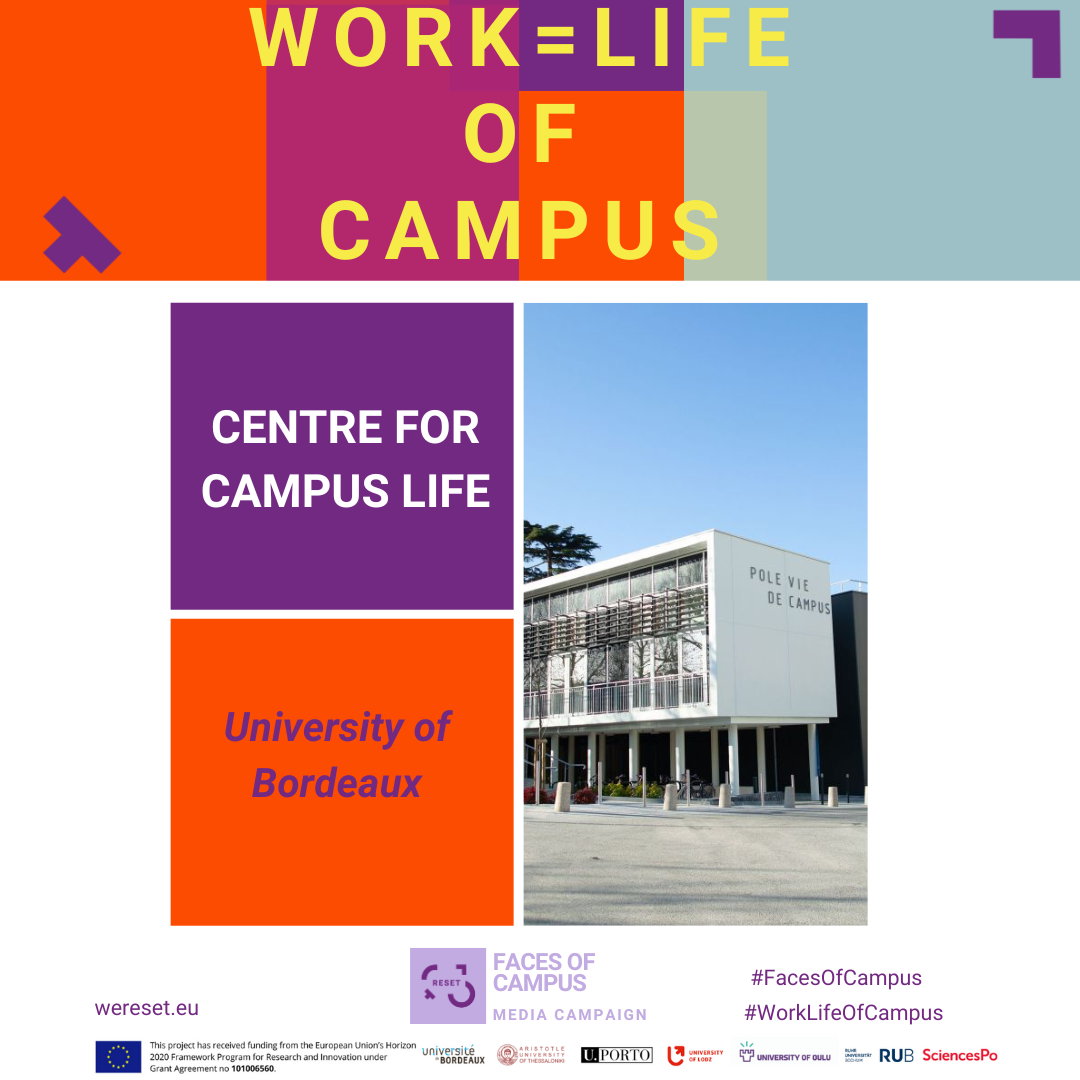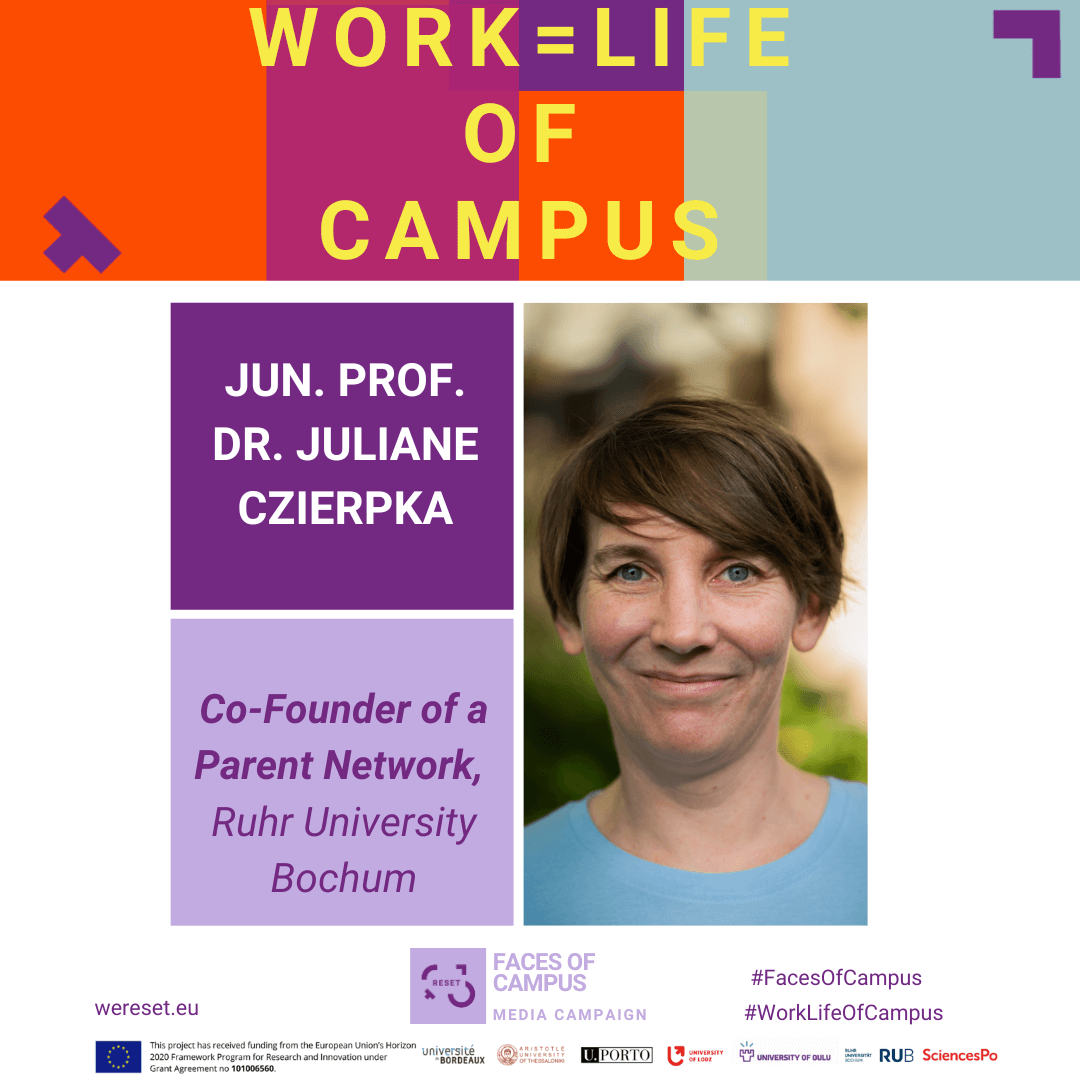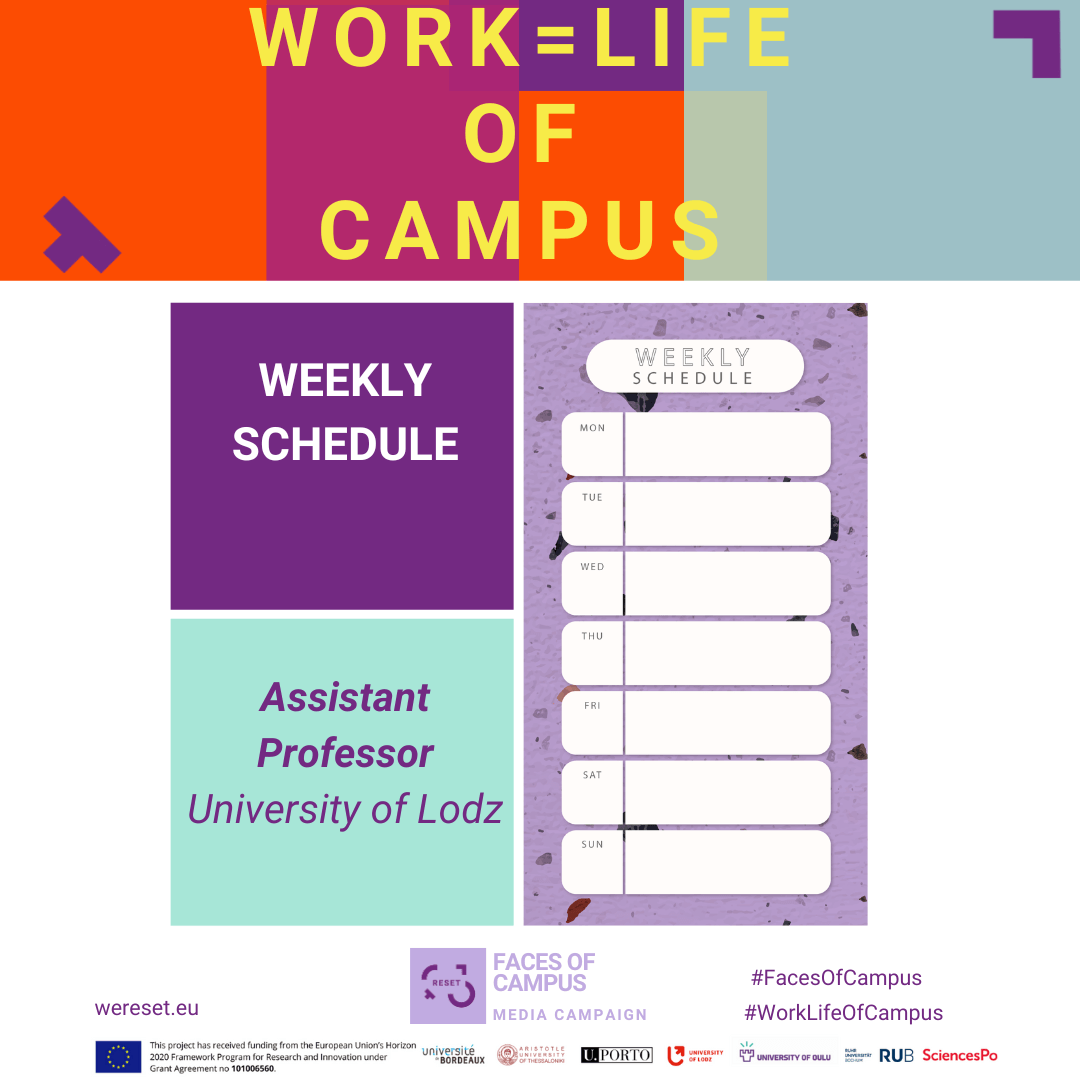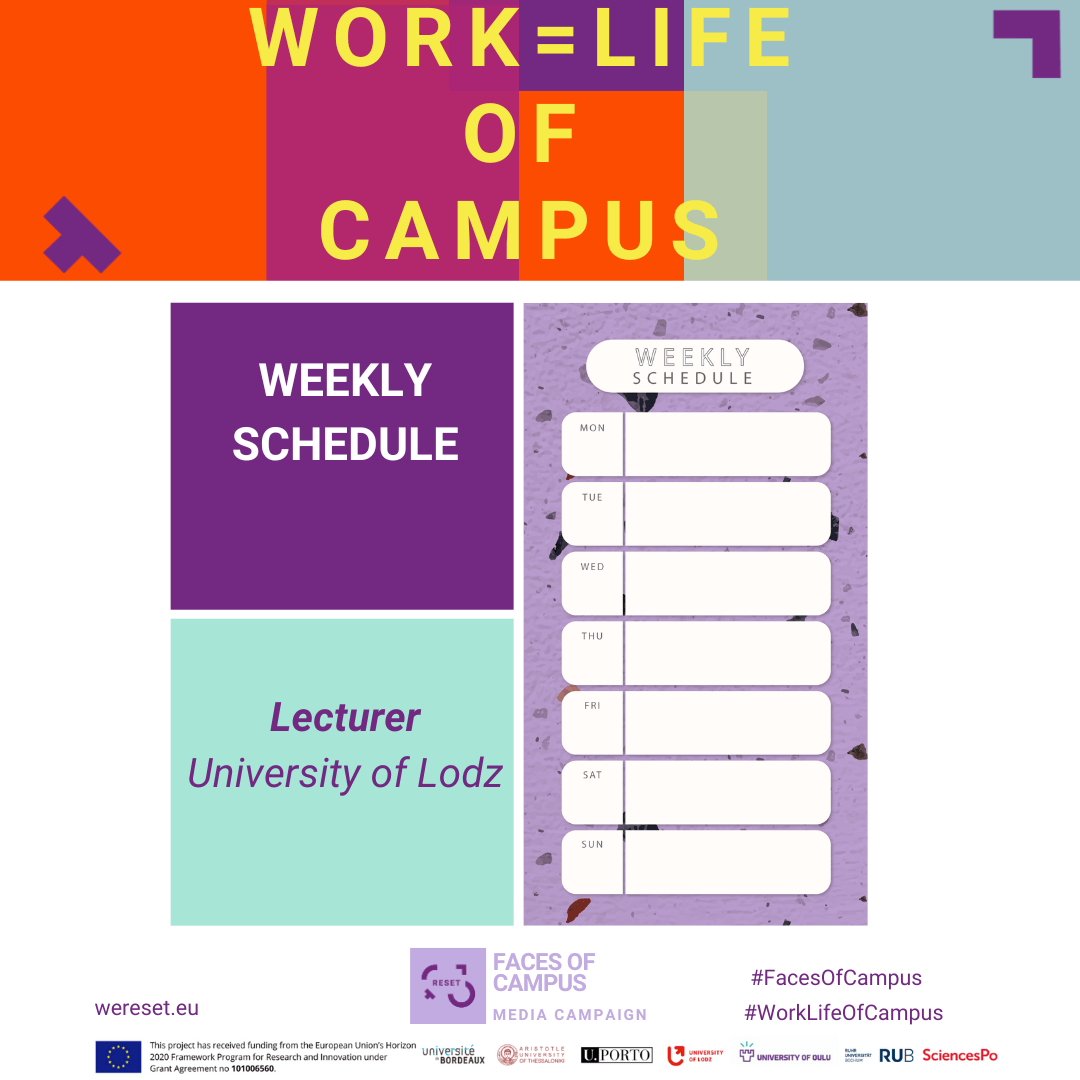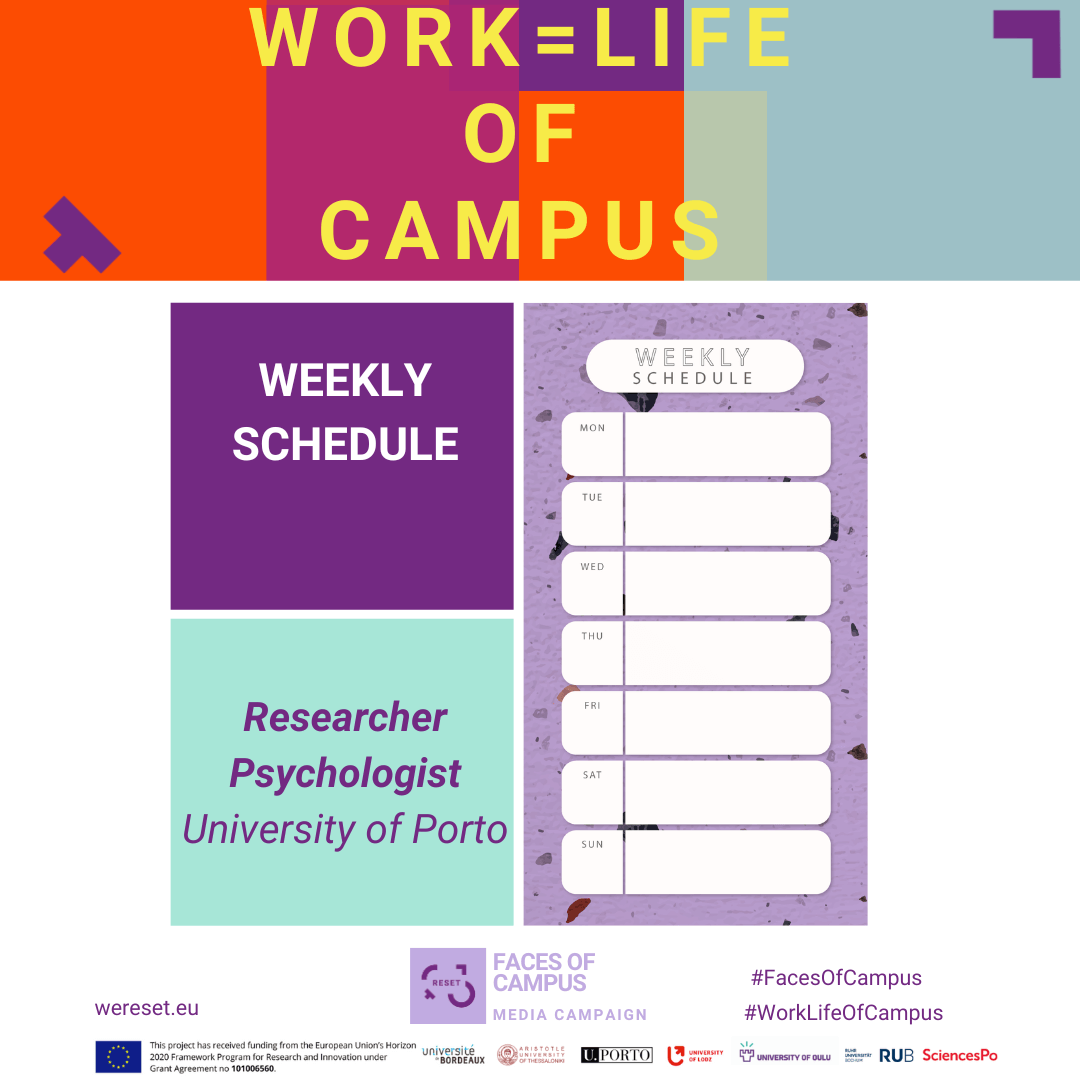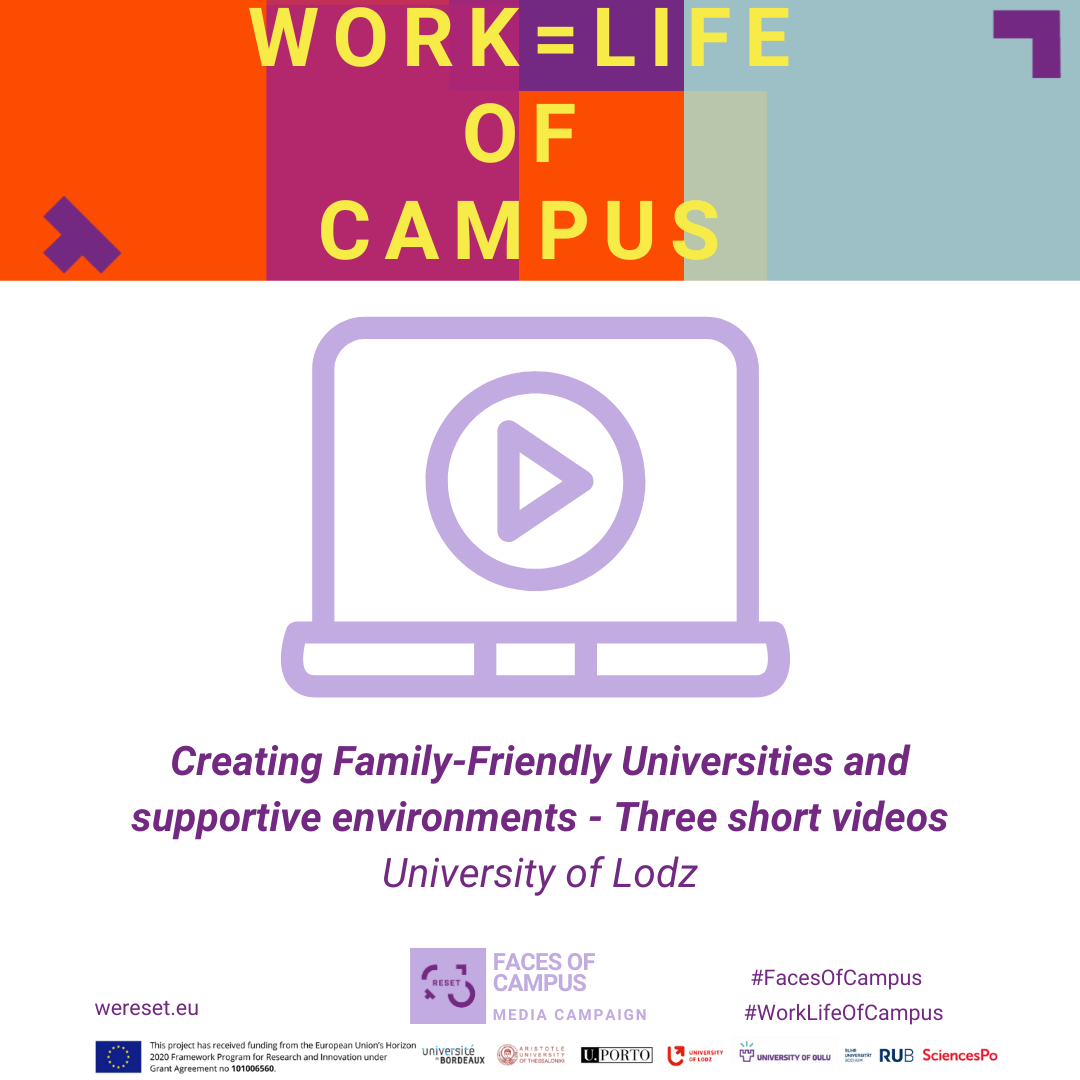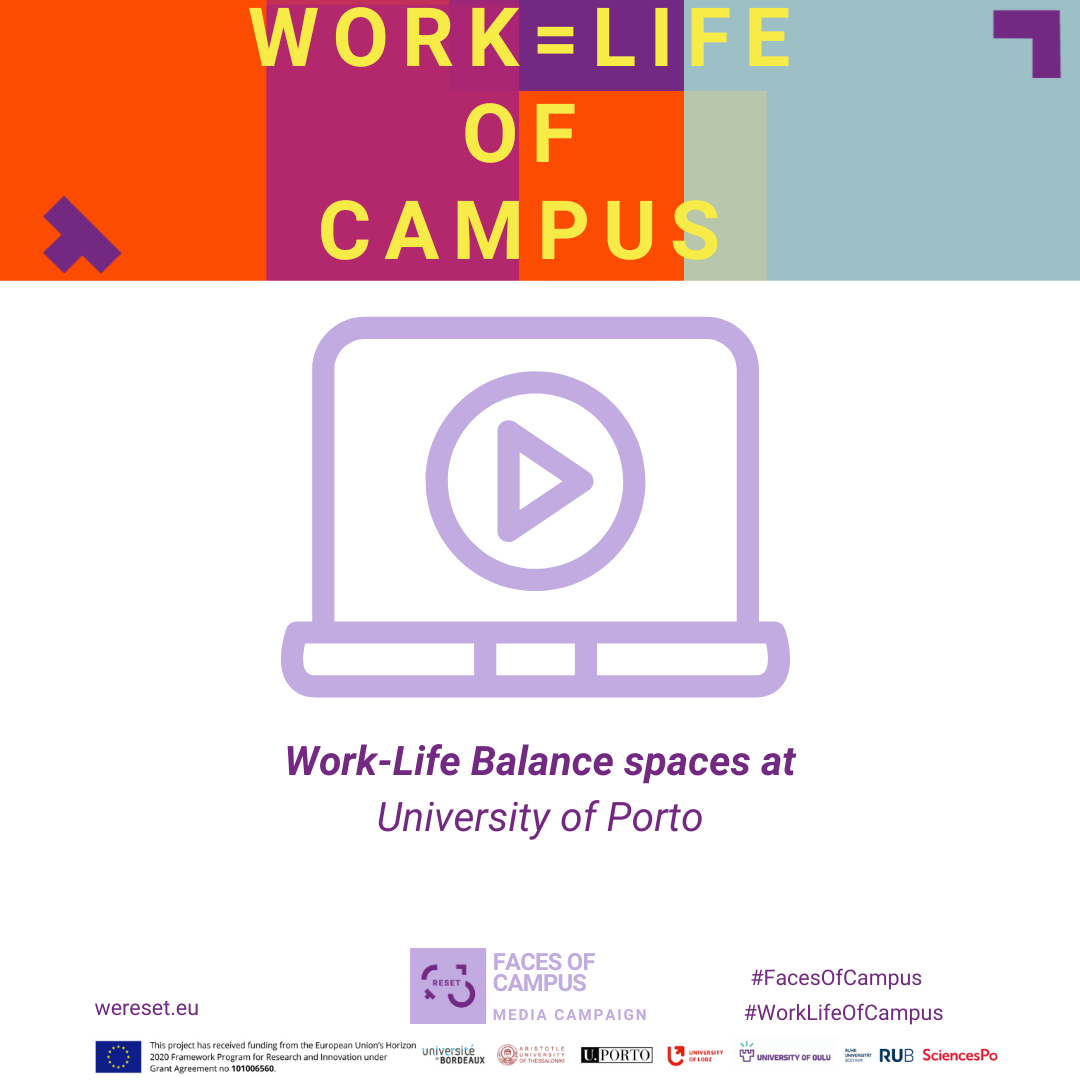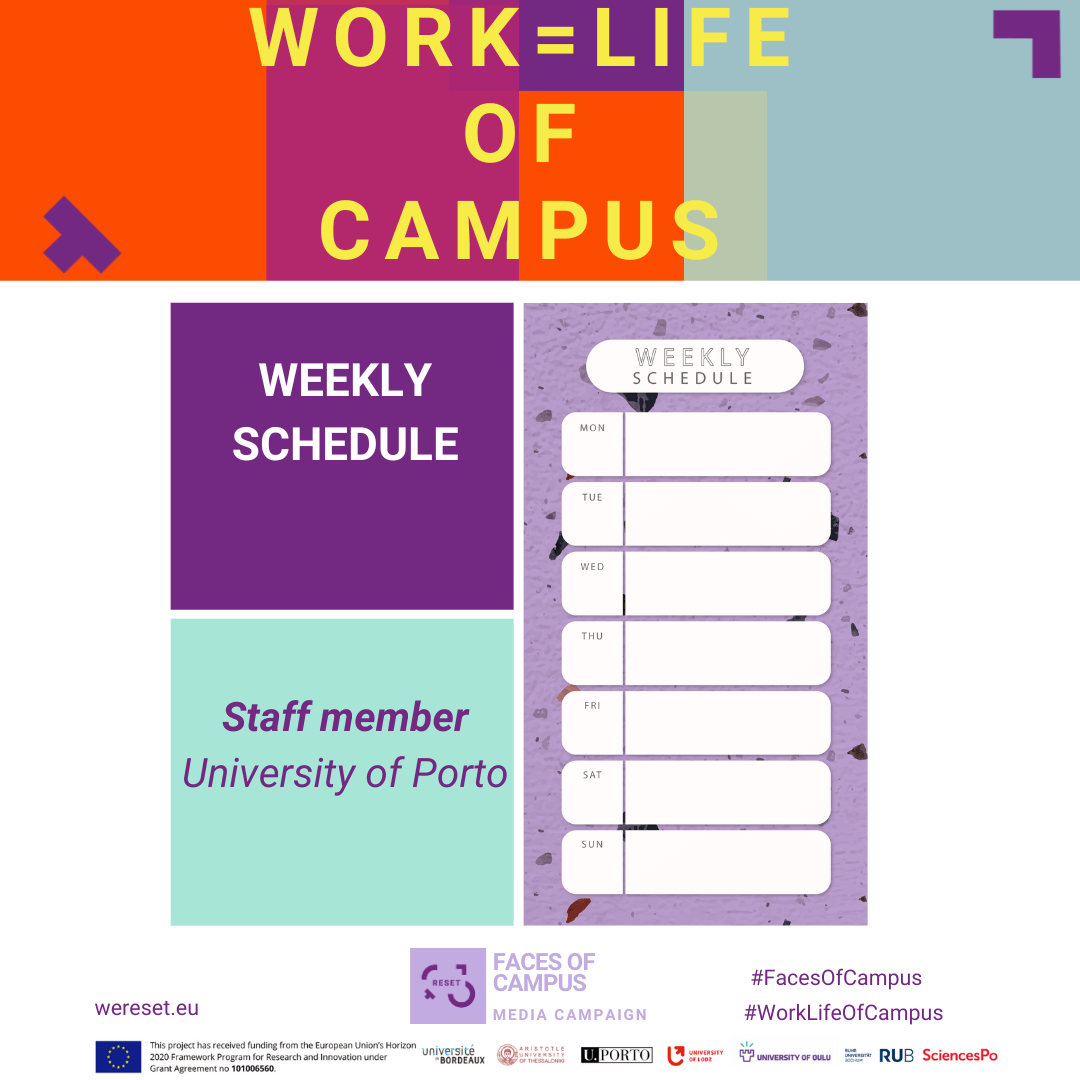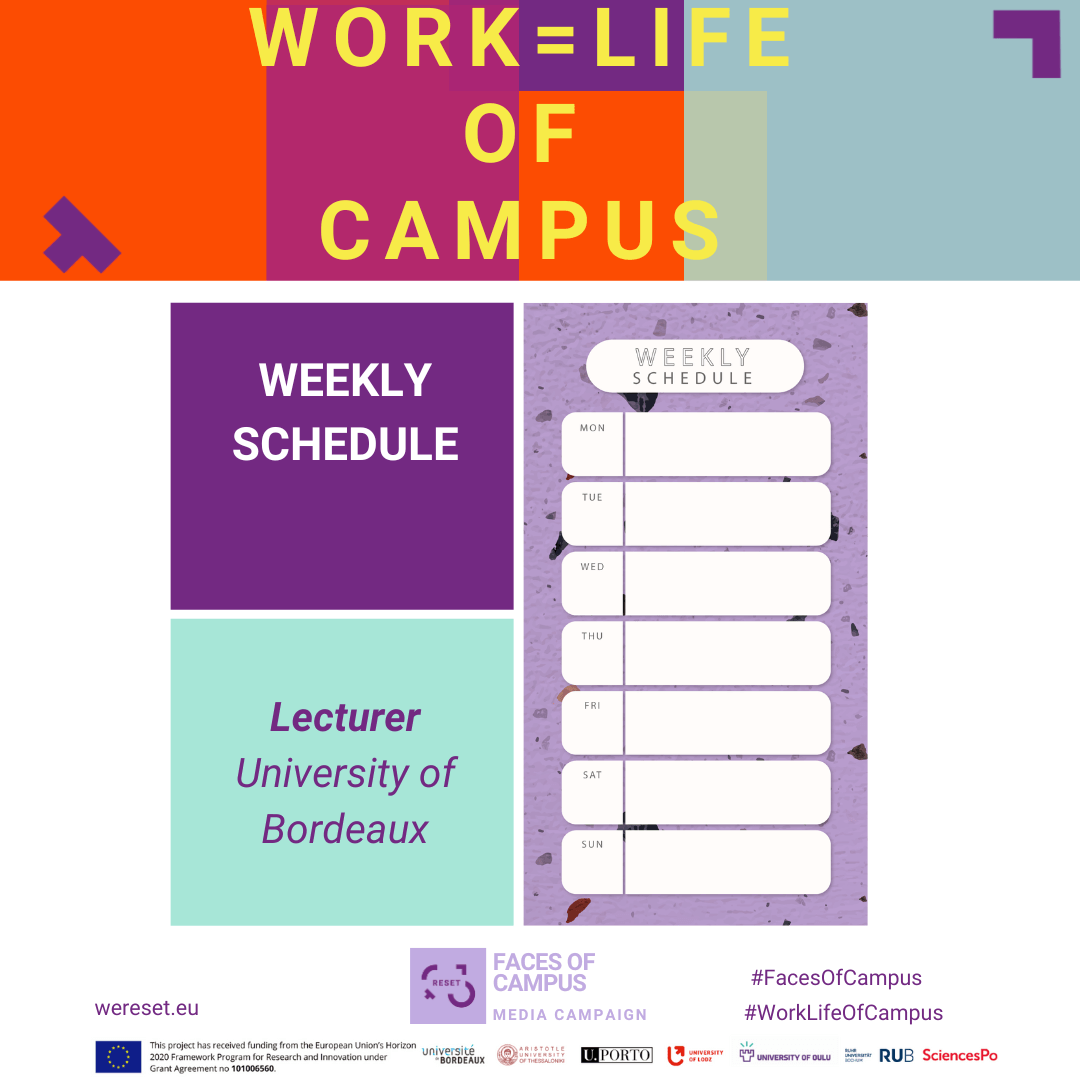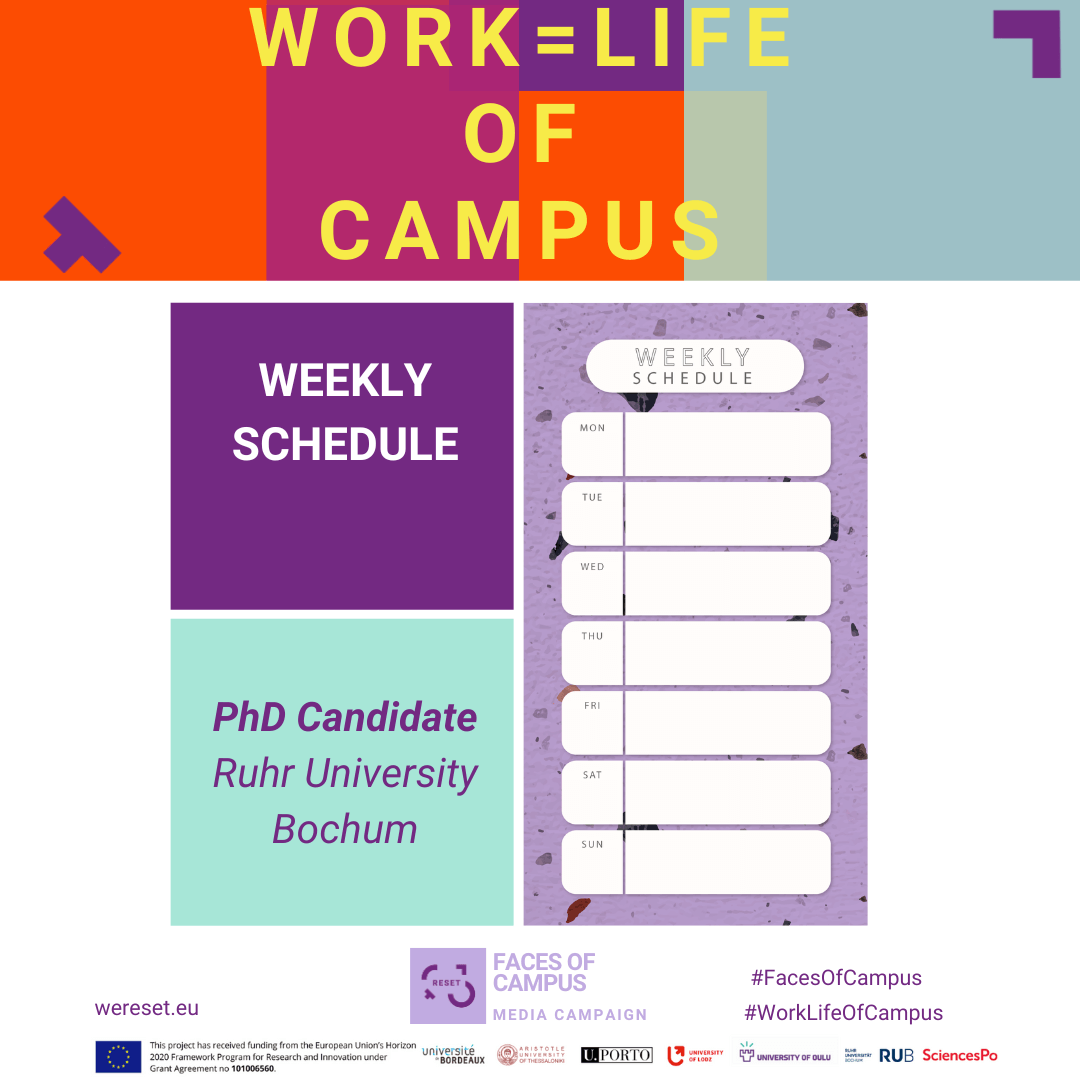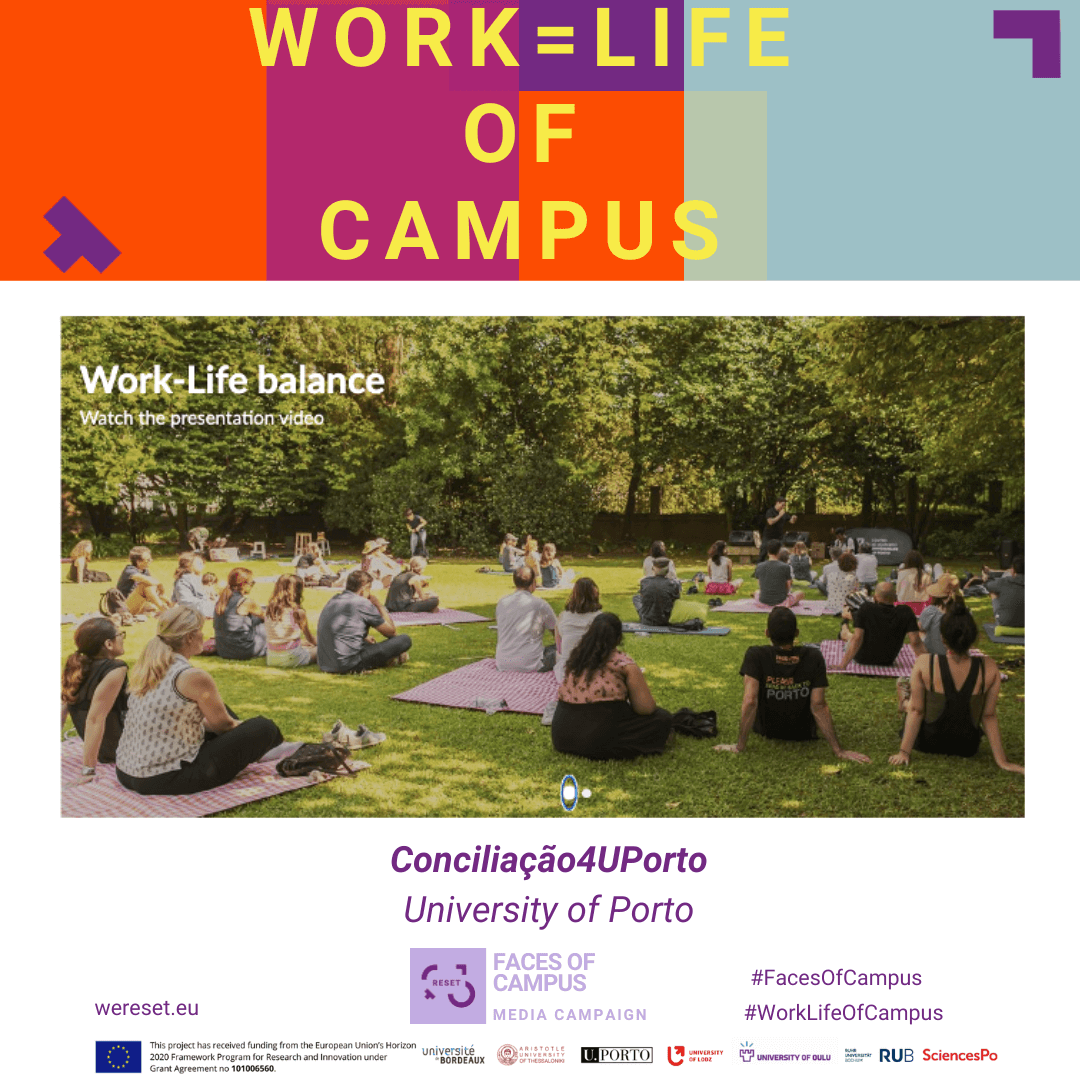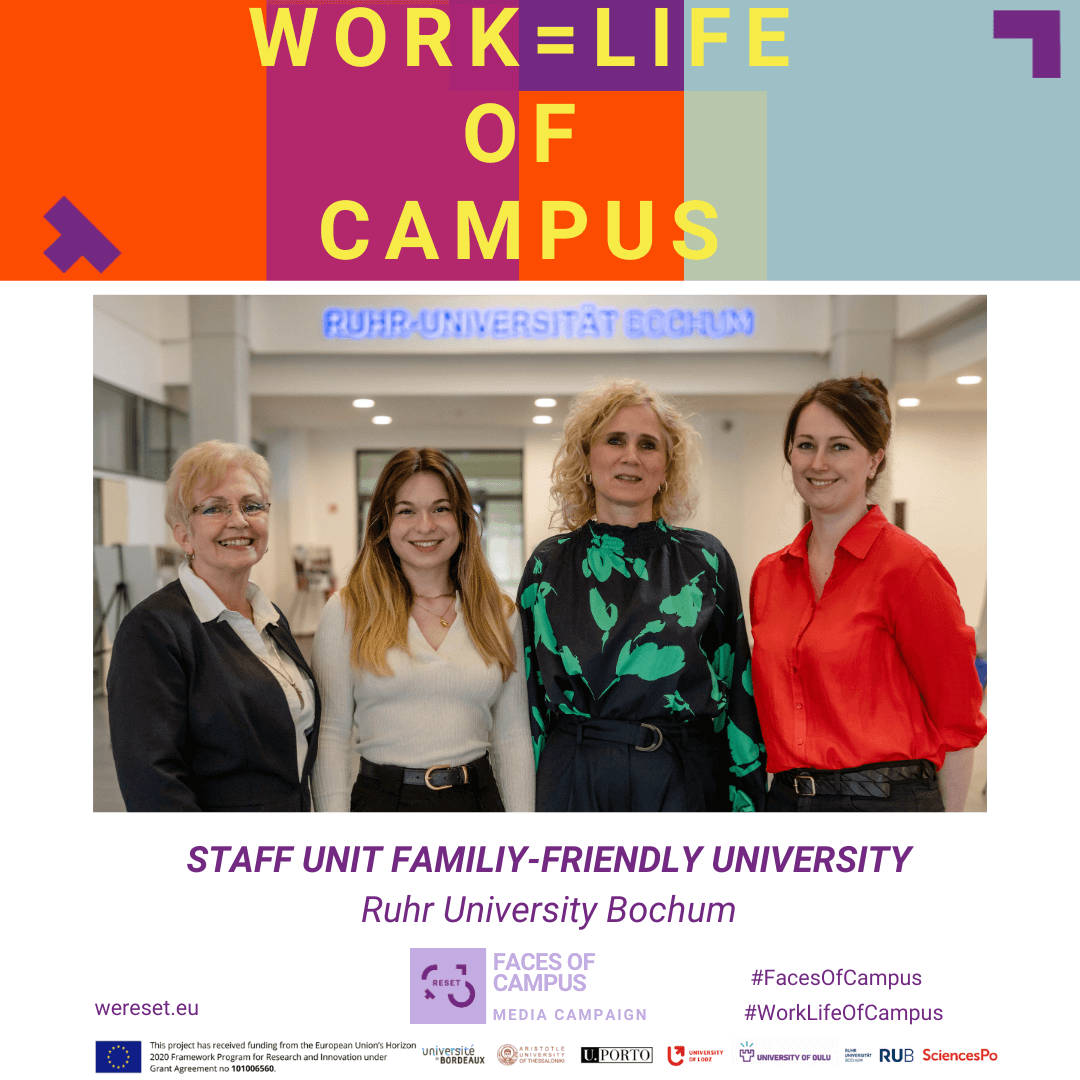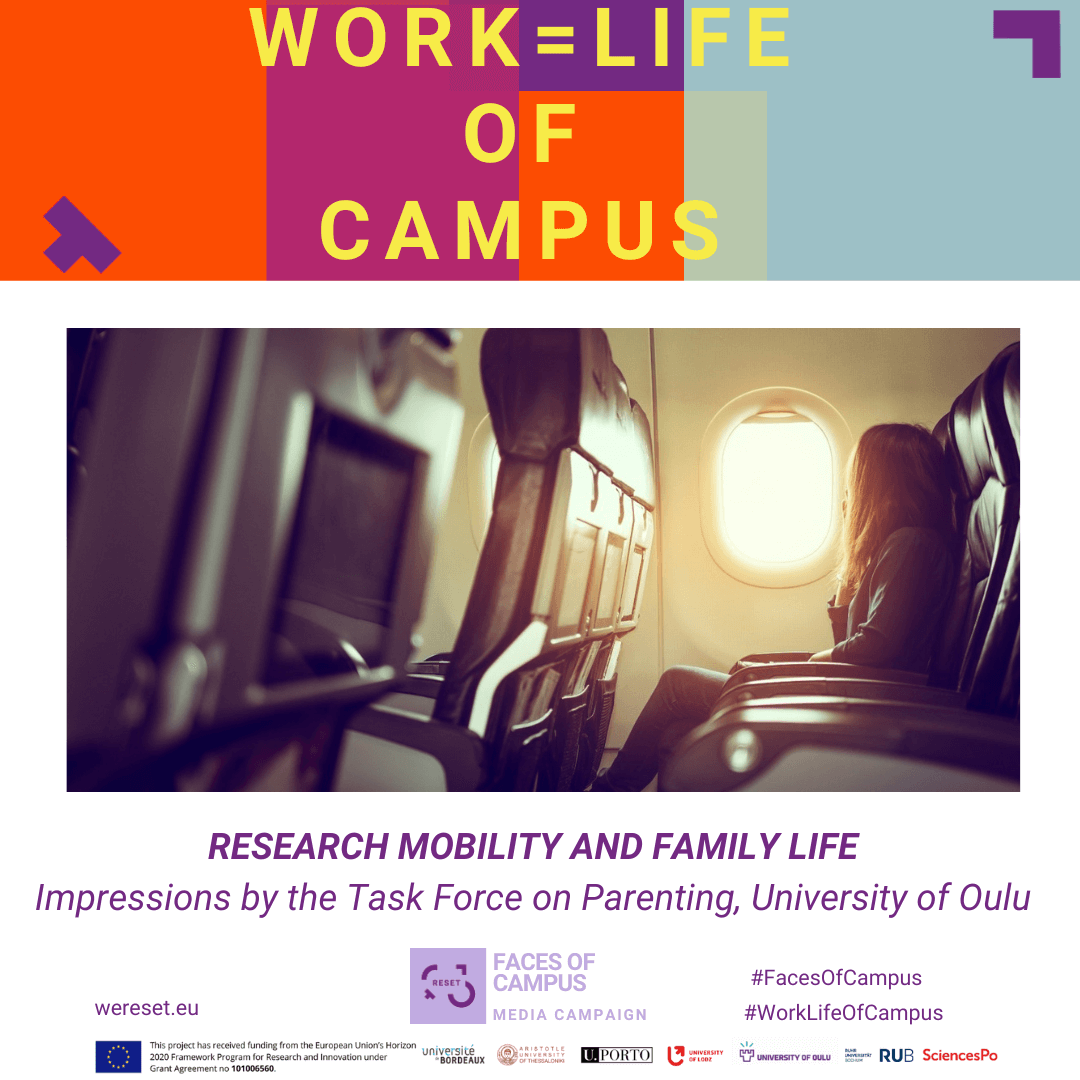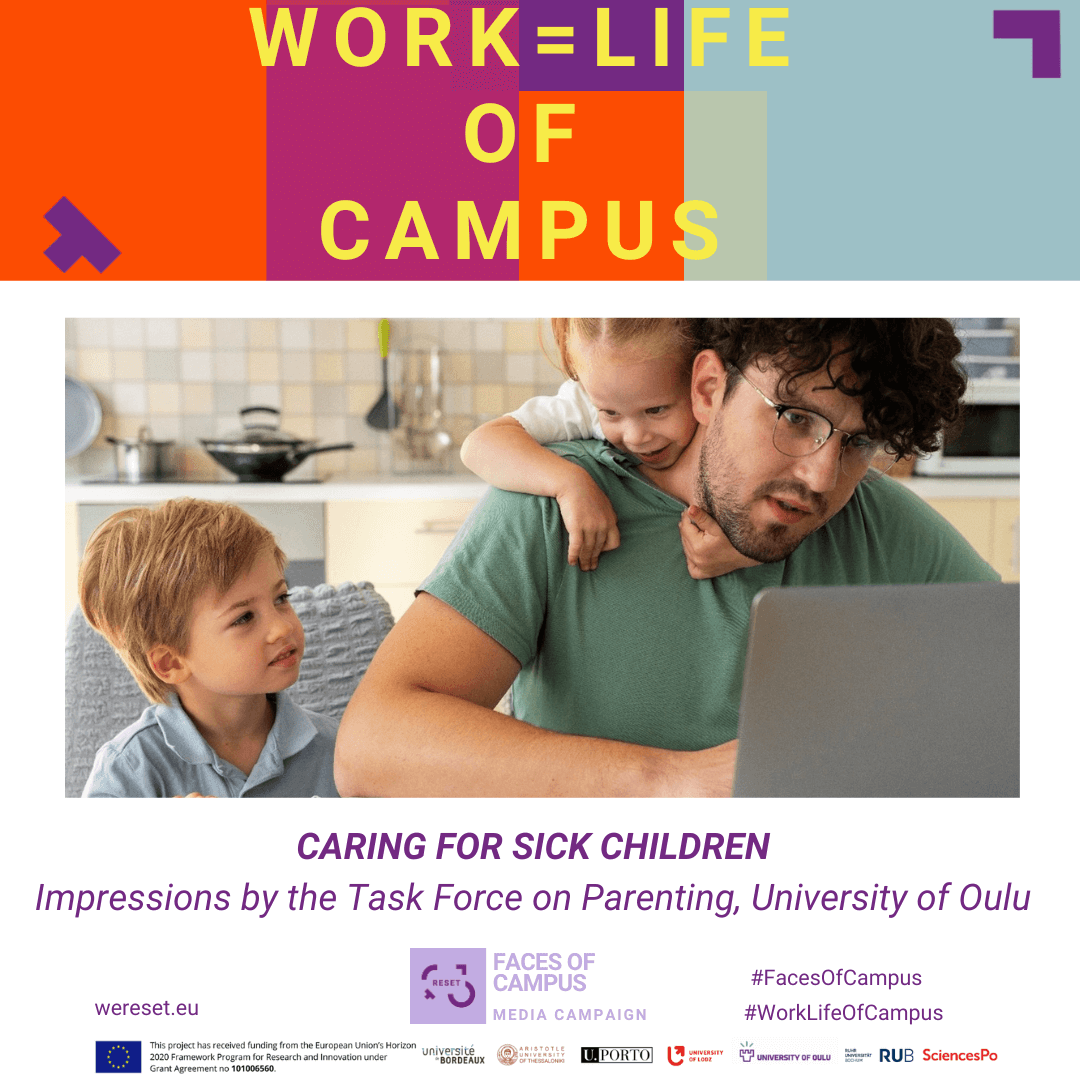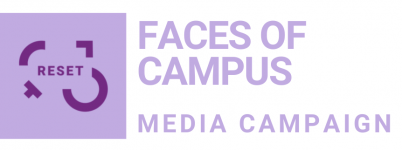

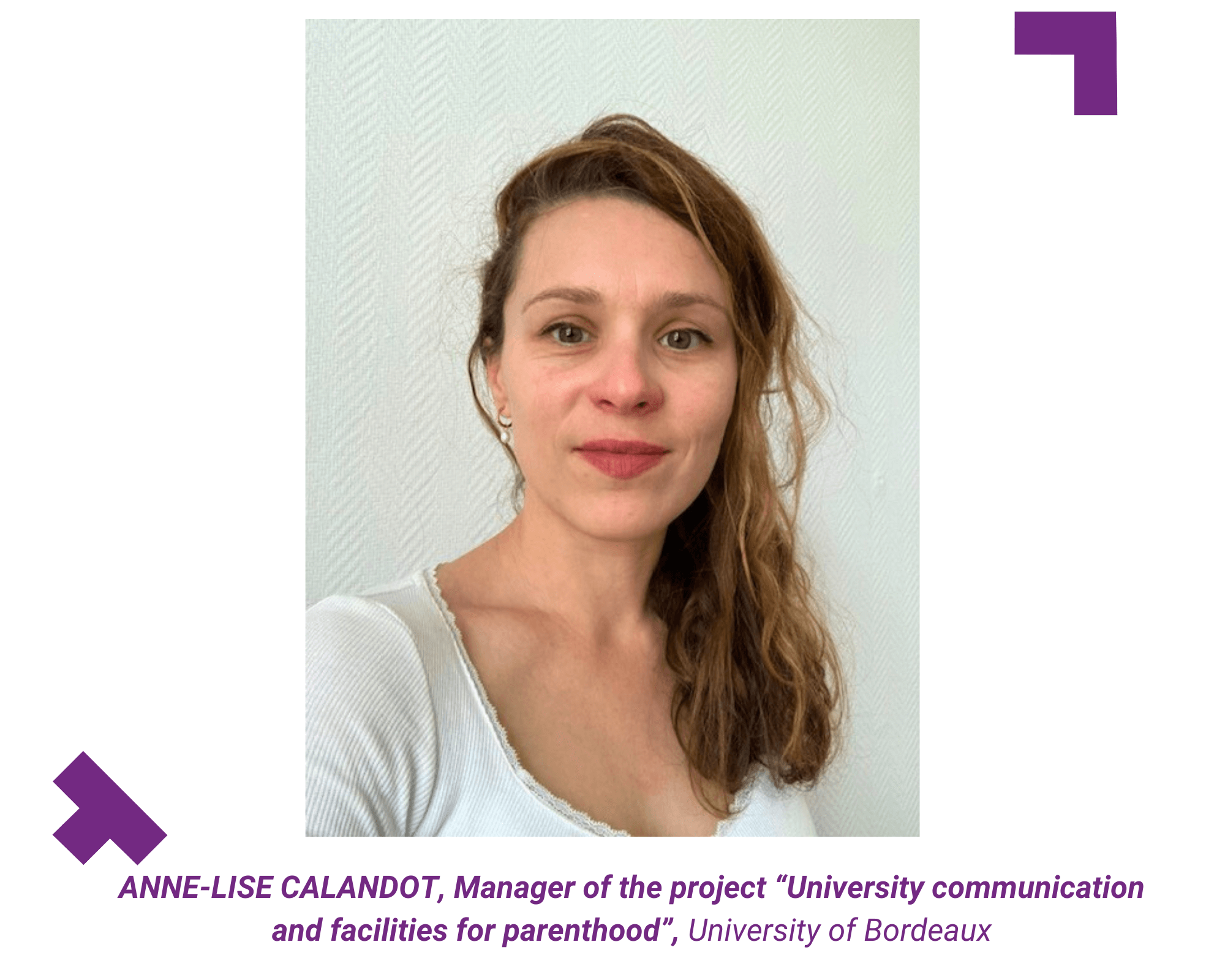
In 2022, the General Direction of the Administration and Public Service in France launched a call for projects with a goal to select and finance projects related to the issues of work-life balance. The University of Bordeaux was part of the selected institutions in this call with a project focusing on parenthood. Anne-Lise Calandot is in charge of the implementation of this project at the University of Bordeaux.
Could you please introduce yourself, your unit and your role in this call for projects?
My name is Anne-Lise Calandot and I work at the Department of the Social Action and Societal Innovation of the University of Bordeaux. Within this department, I am responsible for the Unit of the Societal Innovation, which deals with issues related to the social and societal responsibility, including gender and occupational equality, quality of life and working conditions, including home office. The unit also aims to raise awareness on and combat issues of gender-based violence and discrimination. Within its composition, the unit includes a psychologist, who is also a member of the counselling team at the institutional unit for listening, monitoring and reporting of situations of sexual and gender-based violence and discrimination.
The Unit of the Societal Innovation is actively involved and provides support for the development of proposals to the calls for projects related to social transitions, working conditions, health and quality of life at work.
What is the purpose of this call for projects?
The University of Bordeaux applied for the call for projects launched by the General Administration and Civil Service Department – of the Ministry of Transformation and Civil Service, within the Professional Equality Fund 2022. The proposal of the University of Bordeaux was based on the topic “Improving balance between professional and personal life”, and particularly targeted the organisation of work. We have tackled this issue from the point of view of parents.
So why parenthood? Because we realised that there was a general lack of information for the university’s personnel, including a lack of information on the facilities provided by the human resources and contact points. We should assure that members of the personnel know how to find out more about their rights and how to anticipate and “seize” the parenthood. Therefore, we have to provide them with information and create and disseminate materials and levers for actions. Additionally, there were also issues linked to the project RESET, occupational equality and the governance’s desire to create a common and shared culture on the subject of parental leave, regardless of the personnel’s status – civil servants, fixed-term contract worker or their gender.
The main idea was also to raise awareness in order to stimulate personnel members to take parental leaves, as they are still mostly taken by women. Thus, we present maternity, paternity leave and parental leave. The regulation concerning the parental leave has recently changed: certain things had not been available for the staff with fixed-term contracts. Now the measures apply in the same way as for civil servants. So, we would like to inform staff on all related rights.
What is the content of the project?
The purpose of the proposal was to create some entertaining informational tools as videos (including motion design). These videos contain interviews with members of the university personnel, who are also parents. They share their own experience and questions they had to the university as an employment structure. We asked them what is missed out and what were the positive things. In response to these interviews and experiences, but also in order to guide personnel and make HR action more “human”, we invited a HR manager and the Director of the Social Action to provide their pieces of advice and good practices. On the one hand, there are motion design videos with information, and, on the other hand, it is also good to “humanise” the contact points and make them to answer questions about parenthood directly.
A broader idea was to incorporate these two types of videos (developed within the project) into a wider communications plan, and to complete them with an information guide on the parenthood facilities and leaves (produced by the Communication Department) and a series of information webinars. The current objective is to be able to launch the communication plan on the topic of parenting in September: by disseminating the guide, videos and launching a cycle of webinars.
What are the topics of the webinars?
The webinars focus on (1) Digital parenting (2) Information and rights (based on the materials of the project), (3) Youth and money, (4) Single-parent families. With these webinars, we envisage something more holistic and comprehensive, not just information in a written form, but also interactions with personnel. We would like to provide collective “social and human” support on everyday issues affecting parents.
Which university services have been associated?
We interviewed quite a few people to get their feedback on their experiences, which helped us to shape the communication materials, and particularly the guide. Four of the interviewees were selected to participate in the videos. The HR services have contributed to the reliability of the data. We had to consolidate some information with the Department of Legal Affairs, as we are talking about HR regulations that have changed. The Department of Communication contributed to the design of the videos and the guide: it was involved in the creation of all media support created as a part of the project. They will also be guiding us on communication, dissemination and promotion of the tools.
We had advice and support of the governance – the Deputy Director General of Services, the head of the General Administration and HR Department, Vice-President in charge of Environmental and Societal Transitions, Vice-President in charge of Human Resources, Vice-President in charge of Health and Quality of Life at Work, Officer in charge of Gender Equality, Parity and Diversity and the scientific coordinator of RESET.
What is the strategy for dissemination of these tools?
We have set the launch for the beginning of the 2023 academic year. Information will be disseminated through the intranet. We also plan to disseminate it via the weekly newsletter sent to all members of the UBx personnel. There will be a separate presentation at the meeting of managers, who are the information points for staff. They will be able to know more about the leaves and facilities and take advantage of available tools to guide their colleagues. We would also like to run presentations to the HR representatives in the different services. These are staff who relay information from the HR Department. They told us that they would require to be better equipped and, so, to be able to legitimise the information. Then, we will be doing iterative communication campaigns over the 2023-2024 academic year.
Will the workshops be targeting only university personnel?
Yes, because they are based on the measures concerning the subject of parenthood at work. So the focus will be on staff, including PhD students with contracts.
What are the expected results of the project?
The first objective is to make university personnel better informed. The university has to fulfil its duty as an employer. I hope that this will help to progress on this issue. We would also like to highlight the resources that can be offered, humanise the administration and demonstrate that there is human support.

